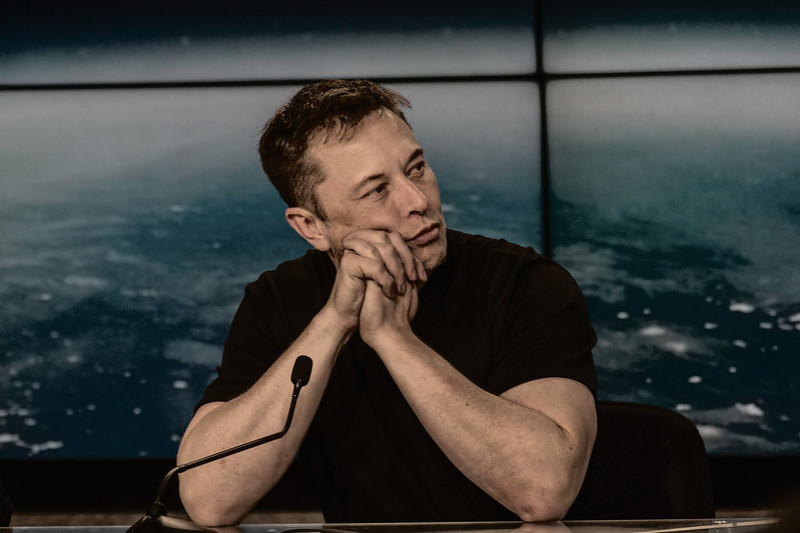
Has Elon Musk's presence in the public consciousness grown even more in the past year? It's hard to believe, considering he was named Time magazine's Person of the Year in 2021. However, the tech entrepreneur's influence and fame continue to increase.
Despite his current status as the world's wealthiest individual, life has not been without its challenges for Elon Musk. Recently, he has garnered significant media attention for his controversial actions on Twitter. However, his other business endeavors have also faced difficulties.
Ethical Considerations and Collected Reactions
Some Christian neurologists have raised ethical questions about using brain implants, but Musk has stated that he created Neuralink as a "risk mitigation for digital super-intelligence." In an interview with The Babylon Bee, he explained that by achieving symbiosis with digital intelligence, the "collective human will" would be better able to guide the direction of technology or "go along for the ride" with benign artificial intelligence.
Musk believes Neuralink will ultimately allow paraplegic or tetraplegic individuals to operate a phone faster than those with able-bodied hands. While these goals are certainly ambitious, some have speculated whether Musk has a hidden agenda that stems from what one Christian thinker has called an "atheistic transhumanist" worldview.
Rev. Christopher Benek, a Presbyterian pastor and the founding chair of the Christian Transhumanist Association, believes that transhumanism is a "complex web of philosophies, theologies, and practical technological developments," that will eventually become an "inevitable part of human reality."
Benek hopes to merge technological development with Christian teachings to create "Christian transhumanism." He asks: "to which transhumanist worldview will the bulk of humanity adhere?" Benek believes Christians should have no issue with Neuralink's proposed developments, as healing is at the heart of the Christian tradition.
Todd Hampson, co-host of the "Prophecy Pros Podcast" in Edifi Podcast Network, is concerned about the potential for abuse of technology like Neuralink for political or economic gain, which could lead to digital totalitarianism.
He points to the statements of intellectuals like Yuval Harari and Klaus Schwab, founder of the World Economic Forum, who have expressed an interest in controlling minds with brain chips and other implantable technologies. Hampson believes that technology is neutral but can be dangerous if it falls into the wrong hands.
He also raises the possibility of technological restrictions being imposed on individuals and wonders about Musk's ultimate goals and motivations with Neuralink. However, he acknowledges that the technology can be used for positive purposes, such as restoring mobility or vision or repairing damaged nervous systems.
Also Read: Tesla CEO Elon Musk Says He Agrees With 'The Principles That Jesus Advocated'
Transhumanism vs. Atheistic Transhumanism
According to Acton Institute, Transhumanism, a new form of religion, has gained popularity among the wealthy elite of Silicon Valley, as well as among philosophers, bioethicists, and futurists. It offers hope through the prospect of radical life extension through technological means, similar to the promise of eternal life in traditional theism. Unlike traditional religions, however, transhumanism does not require adherence to dogma or the need for forgiveness or atonement for sin. It is a religion that fits well with the postmodern era, providing the comfort and benefits of faith without the traditional religious obligations. Atheistic Transhumanism is opposed in this, in which there is a belief that religion is a major contributor to evil and an obstacle to the development of transhumanist technologies, such as life extension. This belief holds that religion should be completely opposed in order to allow for the advancement of these technologies.
Continued Technological Breakthroughs of Elon
Despite its leading position in the electric vehicle market, Tesla's market value has decreased significantly since Elon Musk's involvement in Twitter, potentially jeopardizing his position as the world's wealthiest person. Meanwhile, SpaceX is on track to surpass its goal of 60 launches in 2022 but has faced accusations of violating labor laws from some employees.
In a report by The Christian Post, Musk's satellite internet service, Starlink, is on its way to becoming the largest satellite-based consumer internet provider but has faced criticism from customers. The Boring Company, Musk's tunneling venture, has reportedly experienced staff and engineering losses but is progressing in developing underground transportation systems in multiple U.S. cities.
Musk's medical device company, Neuralink, has sparked significant interest and concern among religious and secular ethicists. In 2019, the company used a sewing machine-like device to insert ultra-fine electrodes, called threads, into the brain through tiny holes.
According to the Sweden Posts, These electrodes were designed to read neural activity and write signals into the brain to restore senses such as touch or vision. Musk announced plans to have the technology implanted in a human by the end of that year but later revised the timeline, stating that Neuralink will develop a wireless brain chip and begin human clinical trials on such a device by mid-2023, as reported by Forbes.
The brain interfaces developed by Neuralink have the potential to enable disabled individuals to communicate and move, as well as restore vision, evoking comparisons to Jesus healing the sick in the Bible.
Related Article: Americans Believe Microchip Implants 'Will Be Used To Usher Never-Before-Seen Totalitarian Control': Poll


















